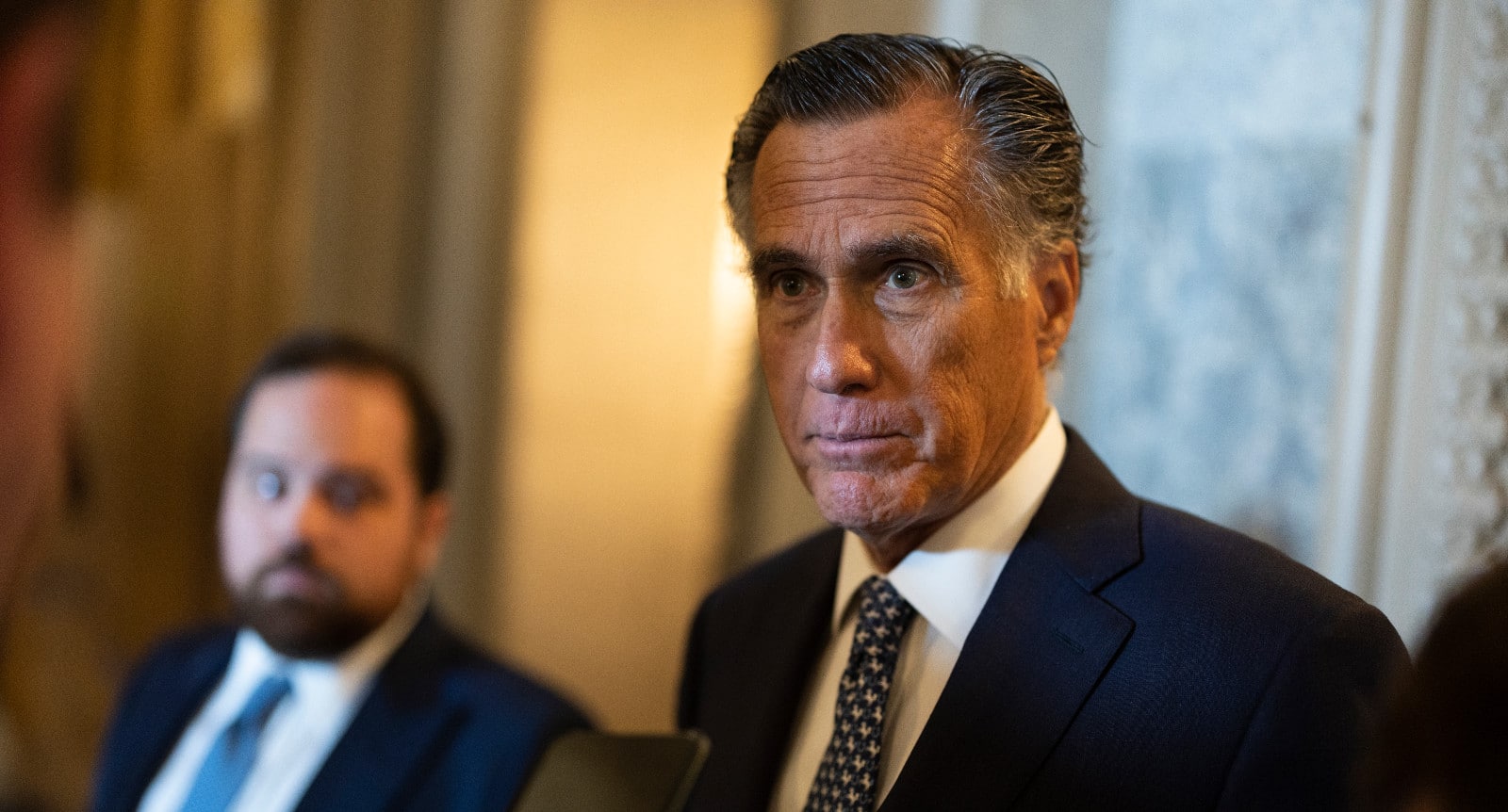OPINION: This article may contain commentary which reflects the author's opinion.
Sen. Mitt Romney, the 2012 Republican nominee for president and the only senator from his party to twice vote in favor of convicting former President Donald Trump in impeachment trials, announced Wednesday that he will not run for re-election as senator for Utah.
He said in an interview that it is time for a new generation to “step up” and “shape the world they’re going to live in,” the Washington Post noted.
Romney claimed that his belief that a second term, which would take him into his 80s, would probably be less fruitful and satisfying than the current term, had a significant impact on his decision not to run again. He attributed that to both the chaos he perceives among House Republicans and his own lack of faith in President Biden and Trump’s ability to lead.
“It’s very difficult for the House to operate, from what I can tell,” he said in a lengthy telephone interview previewing his formal announcement, “and two, and perhaps more importantly, we’re probably going to have either Trump or Biden as our next president. And Biden is unable to lead on important matters and Trump is unwilling to lead on important matters.”
With 63 percent of the vote, Romney won election to the Senate in 2018 and declared that he would complete the remainder of his term, which expires in January 2025.
In July, a report noted that Romney was devising a new plan to prevent Trump from winning the 2024 GOP presidential nomination.
The Utah Republican and twice-failed GOP presidential contender wrote in The Wall Street Journal this week that GOP donors should pull funding from a myriad of 2024 Republican presidential hopefuls and concentrate their efforts on backing a single candidate who could then run successfully against Trump.
In the op-ed, which is titled “Donors, Don’t Fund a Trump Plurality,” and subtitled, “As in 2016, Republican candidates won’t drop out soon enough. Here’s how to give them a push,” he outlined his strategy.
“Despite Donald Trump’s apparent inevitability, a baker’s dozen Republicans are hoping to become the party’s 2024 nominee for president. That is possible for any of them if the field narrows to a two-person race before Mr. Trump has the nomination sewn up,” Romney’s column begins.
“For that to happen, Republican megadonors and influencers—large and small—are going to have to do something they didn’t do in 2016: get candidates they support to agree to withdraw if and when their paths to the nomination are effectively closed. That decision day should be no later than, say, Feb. 26, the Monday following the contests in Iowa, New Hampshire, Nevada, and South Carolina,” he added.
Romney went on to say that “no-hope candidates” often have incentives to prolong their campaigns. Even if they come in behind the first-place candidate, it can set the stage for another run in the future or may lead to lucrative opportunities, as seen with Mike Huckabee and Rick Santorum.
He then quoted former New Hampshire Gov. John H. Sununu: “It is fun running for president if you know you cannot win.”
“Left to their own inclinations, expect several of the contenders to stay in the race for a long time. They will split the non-Trump vote, giving him the prize. A plurality is all that is needed for winner-take-all primaries,” Romney wrote before delving into some political history:
Candidates themselves used to consolidate the field to achieve what they saw as a greater purpose. In 1968, potential candidates William Scranton, Charles H. Percy, Mark Hatfield, John Chafee and Nelson Rockefeller rallied around my father, George W. Romney, instead of seeking nomination themselves, because they believed he had the best shot of stopping Richard Nixon.
When my dad’s campaign faltered, he and they swung to Rockefeller to carry their cause forward. They were unsuccessful but not because of blind political ambition or vanity. They put a common cause above personal incentives.
